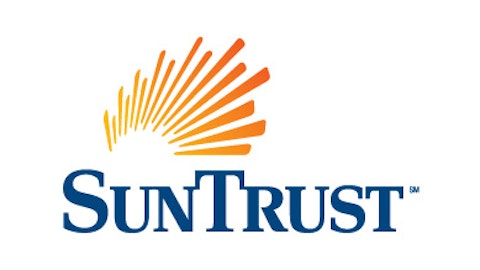The recent announcement of a merger between two well-respected but decidedly local Virginia banks could have implications for thousands of investors beyond the state’s borders. According to confirmed reports by both companies, Richmond-based Union First Market Bankshares Corp. (NASDAQ:UBSH) has agreed to purchase Stellarone Corp (NASDAQ:STEL) in an all-stock deal. Although the deal has not yet cleared regulatory hurdles or been put forth as the subject of a shareholder vote, these obstacles should not prove difficult to overcome. Both firms have indicated that they expect the deal to close by the end of 2013.
However, there are some legal issues that must be settled before then. Some Stellarone Corp (NASDAQ:STEL) shareholders have taken issue with Union First Market Bankshares Corp. (NASDAQ:UBSH)’s offer price, and several shareholder-rights law firms have jumped on the bandwagon with pre-lawsuit investigations. While it is too early to determine whether any of these cases hold water, the situation certainly warrants watching.
Union First, StellarOne and the Competition
These two companies compete with a number of local and national banks and trusts that do business in their home region. One of the most prominent of these is Atlanta-based SunTrust Banks, Inc. (NYSE:STI). This sprawling provider of money center services is widely regarded as one of the strongest banks in the southeastern United States. A comparison between SunTrust and the two Virginia firms might serve to illustrate some of the strengths and shortcomings of this pending merger.
SunTrust Banks, Inc. (NYSE:STI) has a market capitalization of about $17 billion. Given its geographical reach and deep market penetration, it should not be surprising that its valuation exceeds Union First Market Bankshares Corp. (NASDAQ:UBSH)’s $489 million market cap by a substantial margin. Stellarone Corp (NASDAQ:STEL)’s market capitalization of about $427 million is even smaller. SunTrust Banks, Inc. (NYSE:STI) is also less expensive than its two smaller peers: Its price-to-book ratio of .83 is about .1 lower than that of Stellarone Corp (NASDAQ:STEL) and nearly .3 lower than that of Union First Market Bankshares Corp. (NASDAQ:UBSH).
All three of these companies have solid margins and decent balance sheets. In 2012, Union First Market Bankshares Corp. (NASDAQ:UBSH) earned $36.5 million on revenues of $185.5 million and reported a profit margin of nearly 20 percent. Stellarone Corp (NASDAQ:STEL) earned $22.6 million on revenues of $126.3 million for a buffer of about 18 percent. Meanwhile, SunTrust Banks, Inc. (NYSE:STI) earned $2 billion on $9 billion and reported a 23 percent margin.
How the Deal Is Structured
Under the terms of the $445 million deal, Union First Market Bankshares Corp. (NASDAQ:UBSH) will provide StellarOne shareholders with .9739 of a Union First share for every whole share of Stellarone Corp (NASDAQ:STEL) that they own. At Union First’s current share price of about $19.65, this transaction would value each StellarOne share at about $19.13. Relative to StellarOne’s current share price near $18.85, arbitrageurs could snag a premium of as much as 1.5 percent from this transaction.
Complications and Legal Issues
Some of this lingering premium may be the result of the legal challenges that have arisen in response to this deal’s announcement. As is often the case, these challenges center around StellarOne’s shopping period and Union First’s valuation methods. Unsurprisingly, the firms that have spearheaded the investigations make the argument that StellarOne’s management team failed to solicit adequate bids for the company’s assets. Moreover, they allege that Union First has substantially undervalued those assets in its initial offer.
At this point, no lawsuits have been filed. It is unclear whether a serious challenge will arise to delay or scuttle the merger. For now, investors should keep a close eye on these developments and use news-related dips in StellarOne’s stock price to extend their exposure to the deal.
Potential Synergies and Other Advantages
This deal has the potential to produce some interesting synergies that should be apparent to investors with little insider knowledge of the banking industry. Union First and StellarOne have very similar business models and conduct their operations within a common geographical area. Neither firm is large enough to exercise significant pricing power over the larger competitors that do business in the mid-Atlantic states, and ongoing consolidation within the retail banking industry is not likely to favor their small-bore business tactics. As such, a combination that produces a company with over $300 million in annual revenues and nearly 150 branches across Virginia would represent a major improvement on the current situation. The fact that the deal is too small to attract significant regulatory attention is an added bonus.
Worth a Closer Look?
In sum, this deal’s arbitrage opportunity should make it attractive to short-term traders. For long-term investors, Union First’s 2.6 percent yield and relatively stable profits should provide some encouragement. If these companies can leverage this merger’s synergies to create a major player in the Virginia banking sector, investors across the continent are apt to benefit. However, anyone who finds this deal attractive should take a closer look at its particulars to determine its likelihood of closing. An unexpected setback could wipe out many players’ investment theses and cause substantial losses.
Mike Thiessen has no position in any stocks mentioned. The Motley Fool has no position in any of the stocks mentioned. Mike is a member of The Motley Fool Blog Network — entries represent the personal opinion of the blogger and are not formally edited.
The article How Will This Controversial Play Affect Regional Banks? originally appeared on Fool.com is written by Mike Thiessen.
Copyright © 1995 – 2013 The Motley Fool, LLC. All rights reserved. The Motley Fool has a disclosure policy.




